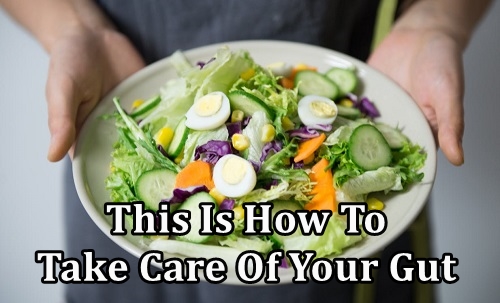However, what many people do not realise is that antibiotics are so good at ridding bacteria from the body, that they can end up stripping your gut of its helpful microbiome as well. Happily, this issue can be fixed pretty easily by taking probiotics afterward, as these will replace the positive flora in the gut and make sure that you stay as healthy as possible.
Snacks
The food we eat has an impact on the health of our guts. However, sometimes it's not the food that we are eating that is the problem, but the way that we eat.For example, snacking is an accepted part of today's culture, and it's common to reach for a snack in between meals, or before we exercise. Unfortunately, some experts suggest that snaking may be doing us more harm than good, and the reason for this is known as the postprandial response.
The postprandial response is a normal and healthy kind of inflammation in the gut that occurs after we eat and then dies down again during the gaps in between meals. Of course, if we have fewer gaps between meals due to constant snacking, it means that the body is in an almost constant inflammatory response which can be bad news for our health, and cause issues such as weight gain, and increased hunger.
With that in mind, some suggest that we cut out snacking altogether and focus instead on well-balanced meals that contain the right combination of fats, fiber, and protein. All of which in combination should help us to stay satiated for longer, and so remove the need for snacks and the problems they create in the gut.
Avoid restrictive diets
Also while we are on the subject of eating the right combination of fats, fiber, and protein in every meal, it's worth highlighting that fad diets can play havoc with your gut health.The main reason for this is that by cutting out a particular food group such as fats, carbs, or protein you can easily upset your guts' carefully balanced ecosystem, leading to further issues.
Indeed, the recent craze for keto diets that remove nearly all carbohydrates is an excellent example of the type of eating to be avoided. The reason for this is that while it may seem effective in the short term, no studies have been done on how it can affect the gut biome over the longer term.
Exercise
Studies have found that compared to those that do a little exercise, those that move their bodies regularly have a much more diverse microbiome in their guts. This is great news because typically more diversity means a better capacity to deal with whatever is thrown at it and to communicate with other parts of the body like the brain more effectively.
Deal with constipation
No one likes to talk about constipation. Yet, it is a common problem that can mess up our gut health, not to mention be very uncomfortable! Of course, the first thing you need to do if you are suffering from constipation regularly is see a medical professional. This is because there could be an underlying health issue that is the cause of it, and this will need to get treated to see any improvement.However, if you have been checked out and given the all-clear, yet constipation is still causing an issue, you may need to make some changes in your lifestyle to help you get back in your regular rhythm again.
Sleep
You may not realize it, but sleep has an important role to play in the way that your gut functions. Your gut can also impact your sleep and vice versa. For example, if you eat something too heavy or super spicy before bed your gut may struggle to digest it properly, which can lead to issues like heartburn or even gastric reflux.However, it is also true that if you don't get enough sleep your gut health can suffer. This is because the bacteria in our guts work in line with the circadian rhythm, our body's natural clock. Something that means if you're not tucked up in bed and asleep at the right time, they can't do their job effectively.
With that in mind, putting some strategies in place to help improve your sleep quality can do a lot to also help your gut. That is why you need to maintain a regular sleep rhythm going to sleep and getting up at the same time each day. It can also help to invest in a supportive pillow and mattress, as this can make getting to sleep and staying asleep through the night much easier. Lastly, be sure to avoid screens and overly stimulated things like video games for at least an hour before bed. Replace such activities with calm and restful ones like reading, gentle stretching, or even meditation.
Fasting
Apart from getting a good night’s sleep, another wonderful way you can support your gut biome is to make sure that you don't eat for at least 12 hours a day. This is because a good 12 hours will allow your gut to heal from all the strains and stresses of the day.Final thoughts
There is so much you can do to boost your gut health. From being more aware of the things we put into our system such as antibiotics, and eating well-balanced nutritious meals, to exercising and sleeping enough.Of course, it is well worth taking these steps too, because a healthy gut is essential for good health overall, both mental and physical.











0 Comments
Terima kasih melawat blog Mrs Pip, dan sila komen dengan berhemah. Live link tidak dibenarkan di ruang komen.